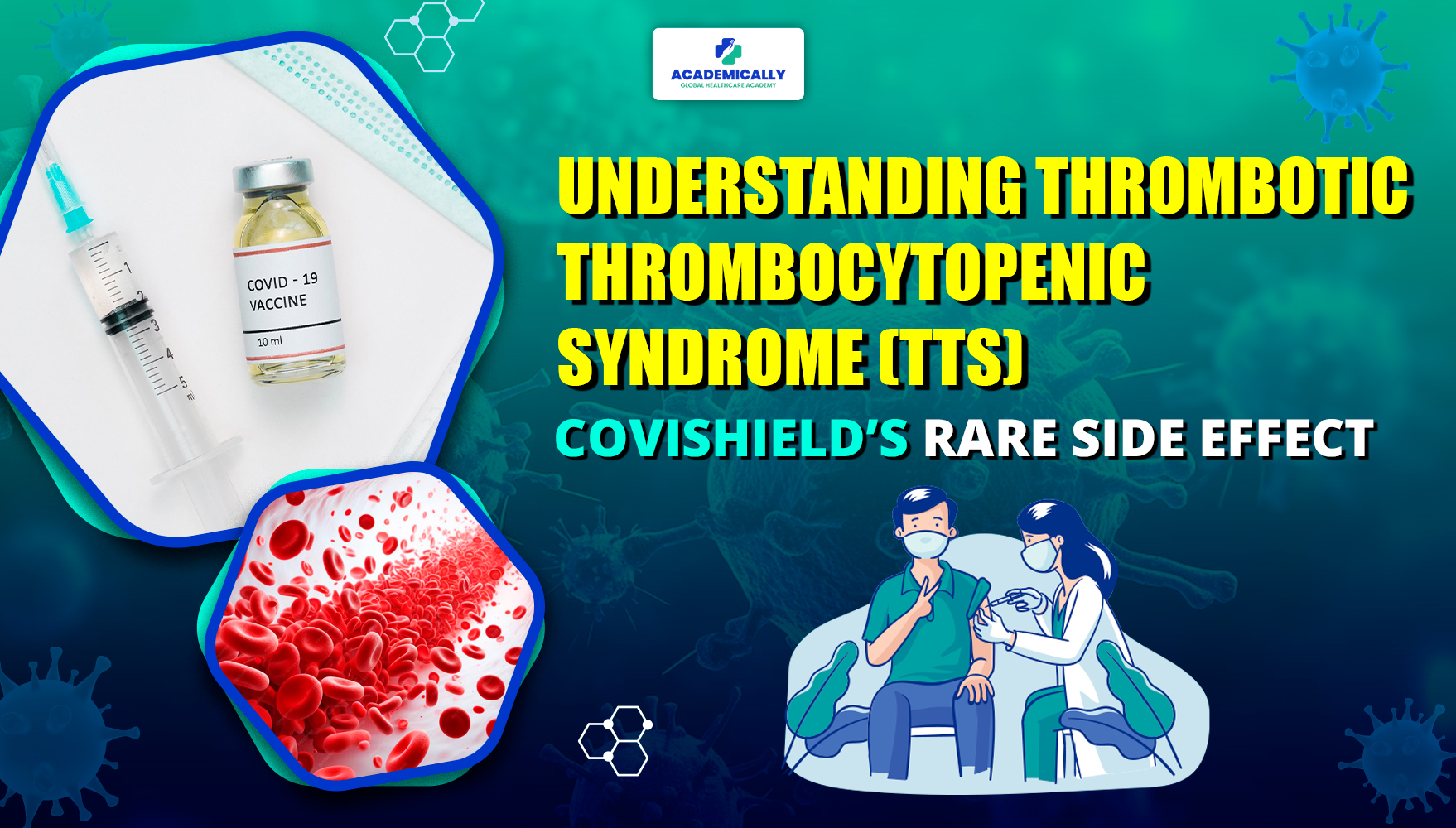What is Thrombotic Thrombocytopenic Syndrome (TTS)?
Thrombotic Thrombocytopenic Syndrome (TTS) is characterised by the development of blood clots in combination with low platelet counts. Platelets are essential for blood clotting, and a decrease in their numbers can lead to excessive bleeding or clotting disorders. In the case of TTS, blood clots often form in unusual locations, such as the brain (cerebral venous sinus thrombosis) or the abdomen.
Connection with COVID-19 Vaccines
TTS has been linked to adenovirus vector vaccines, including Covishield and Johnson & Johnson's Janssen vaccine. These vaccines use a harmless adenovirus to deliver genetic material into cells, triggering an immune response against the coronavirus. However, in rare cases, this immune response can lead to the production of antibodies that activate platelets, causing them to form dangerous clots.
Understanding the Risk
Understanding the Rare Side Effects
It's essential to recognise that all vaccines, including common flu vaccines, can have rare but serious side effects. However, the keyword here is "rare." Serious adverse effects, including TTS, typically occur within six weeks of receiving the vaccine. Given that most individuals received the Covishield vaccine in 2021-22, the likelihood of experiencing TTS at this stage is minimal.
Expert Insights and Reassurance
Haematologists and experts emphasise that individuals most at risk of TTS are typically those who are bedridden, hospitalised, or have underlying medical conditions related to inflammation, infection, or cancer. For the majority of the population, the risk of experiencing TTS is incredibly low.
Recognising Symptoms and Seeking Medical Attention
While it's essential to be aware of potential symptoms of TTS, it's equally crucial not to succumb to fear mongering. If you experience any concerning symptoms, seek medical attention promptly. However, it's essential to remember that such cases are exceptionally rare.
Symptoms of TTS affecting the brain include:
- Severe, persistent headache
- Blurred vision
- Difficulty speaking
- Drowsiness
- Seizures or confusion
Symptoms of TTS affecting the rest of the body included:
- Difficulty breathing
- Chest pain
- Leg swelling
- Persistent abdominal (stomach) pain
- Tiny blood spots under the skin, away from the site of injection
Diagnostic Approaches
Medical professionals utilise a combination of blood tests and imaging scans, including CT scans, to diagnose TTS accurately. These diagnostic tools help assess platelet counts, detect the presence of blood clots, and evaluate any potential damage or abnormalities in affected organs.
Treatment Strategies
Once diagnosed, treatment for TTS typically involves a multidisciplinary approach aimed at addressing the underlying causes and managing symptoms effectively. The following interventions are commonly employed:
- Anticoagulant (Anti-clotting) Medicines
- Intravenous Immunoglobulin (IVIG)
- High Dose Prednisone
Final Words
In conclusion, understanding the facts surrounding TTS and the Covishield vaccine is crucial for making informed decisions. While the risk of TTS exists, it is exceedingly rare, and the benefits of vaccination far outweigh the potential risks. It's essential to rely on credible sources of information and consult healthcare professionals for guidance. By doing so, we can combat misinformation and work towards a safer, healthier future for all.
Do you think this topic will be in the AMC exam this year? Which global exam are you preparing for? Visit Academically to choose a career abroad.
For more such interesting information, visit our YouTube channel!



